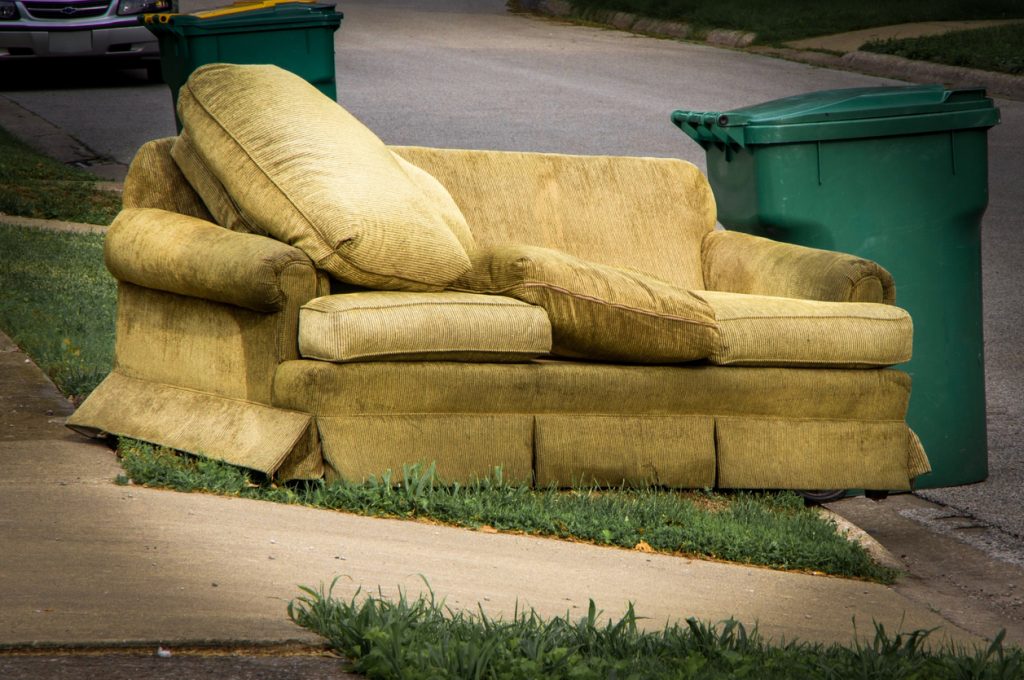Persistent Organic Pollutants (POPs) Update
As of January 2023, here at Reston Waste, we will be changing how we collect, store and then process any waste upholstered domestic seating in accordance with recent changes in government legislation.
The Environment Agency (EA) has issued guidance for all waste upholstered domestic seating to be incinerated unless it can be proven that persistent organic pollutants (POPs) were not used in its manufacture. This is because POPs have been shown to break down over time, creating a hazardous chemical that can slowly enter our food chain.
These new rules mean that many items of furniture will no longer be recycled, and landfill sites have also been ordered not to accept them. Only professional incineration, with specific bag particulate filters, can be used to destroy these items in order to protect the environment.
As well as this, a ban has been placed on the manufacture, sale and use of furniture containing POPs.

What are persistent organic pollutants (POPs)?
Persistent organic pollutants are materials that were heavily relied upon during a booming manufacturing industry post WWII. They’re a range of specific, synthetic chemicals used particularly in the production of upholstery for seating, specifically the back covers of the lining.
The four main chemicals are:
- decabromodiphenyl ether (DecaBDE)
- hexabromocyclododecane (HBCDD)
- pentabromodiphenyl ether (PentaBDE)
- tetrabromodiphenyl ether (TetraBDE)
You can find out more about the full list of substances the government has classified as POPs on their website.
How to identify POPs
To the naked eye, it might not be easy to identify items containing POPs, which is why legislation has changed to place emphasis on the way we deal with waste upholstered domestic seating.
This is, essentially, any item of seating furniture that contains an upholstered element to it, such as foam, leather or any other textile. The government’s list of example items includes:
- Sofas and sofa beds
- Armchairs
- Kitchen and dining room chairs
- Stools and footstools
- Home office chairs
- Futons
- Bean bags, floor and sofa cushions
All of these items now require specialist disposal via licensed incineration.
If you have items of seating that are not upholstered, such as a wooden bench or chair, then it is unlikely to contain POPs and can be disposed of in the ordinary fashion for recycling.
Here at Reston Waste, we accept waste upholstered domestic seating – or WUDS – that contains persistent organic pollutants. However, in order to help cover the change in the way we collect, store and process these items, we will be applying a charge per item.
We have decades of experience and work hard to help local communities dispose of their waste legally and responsibly. This means keeping up to date with any relevant changes in legislation provided to us. We’re ready to help you with whatever waste you may need to get rid of via skip hire, waste collection and clearance services in London.
To find out more about the changes in the law surrounding waste upholstered domestic seating, you can read the government website.
For details on pricing for the collection and processing of your items, please contact our professional team and we’ll be happy to create a quote for you.




